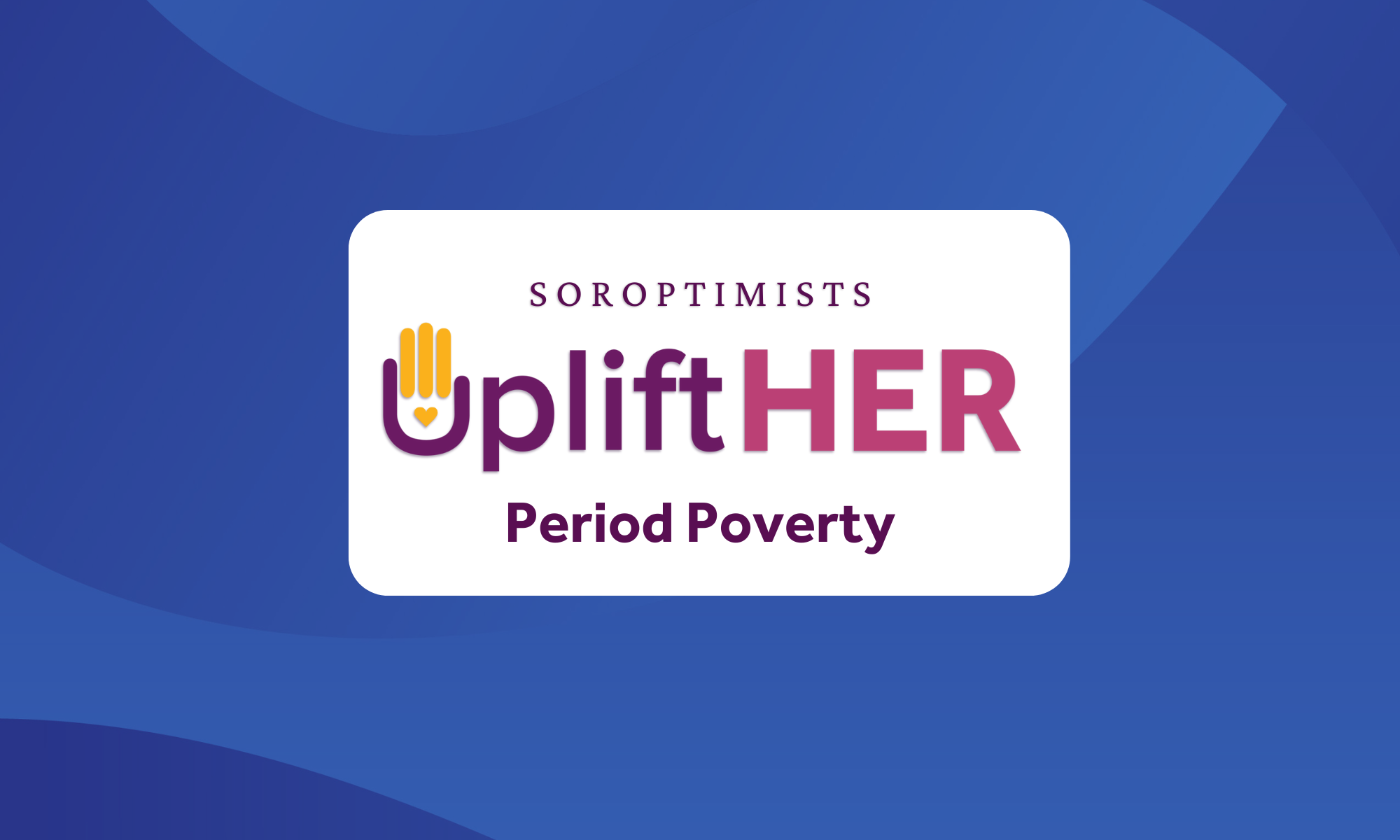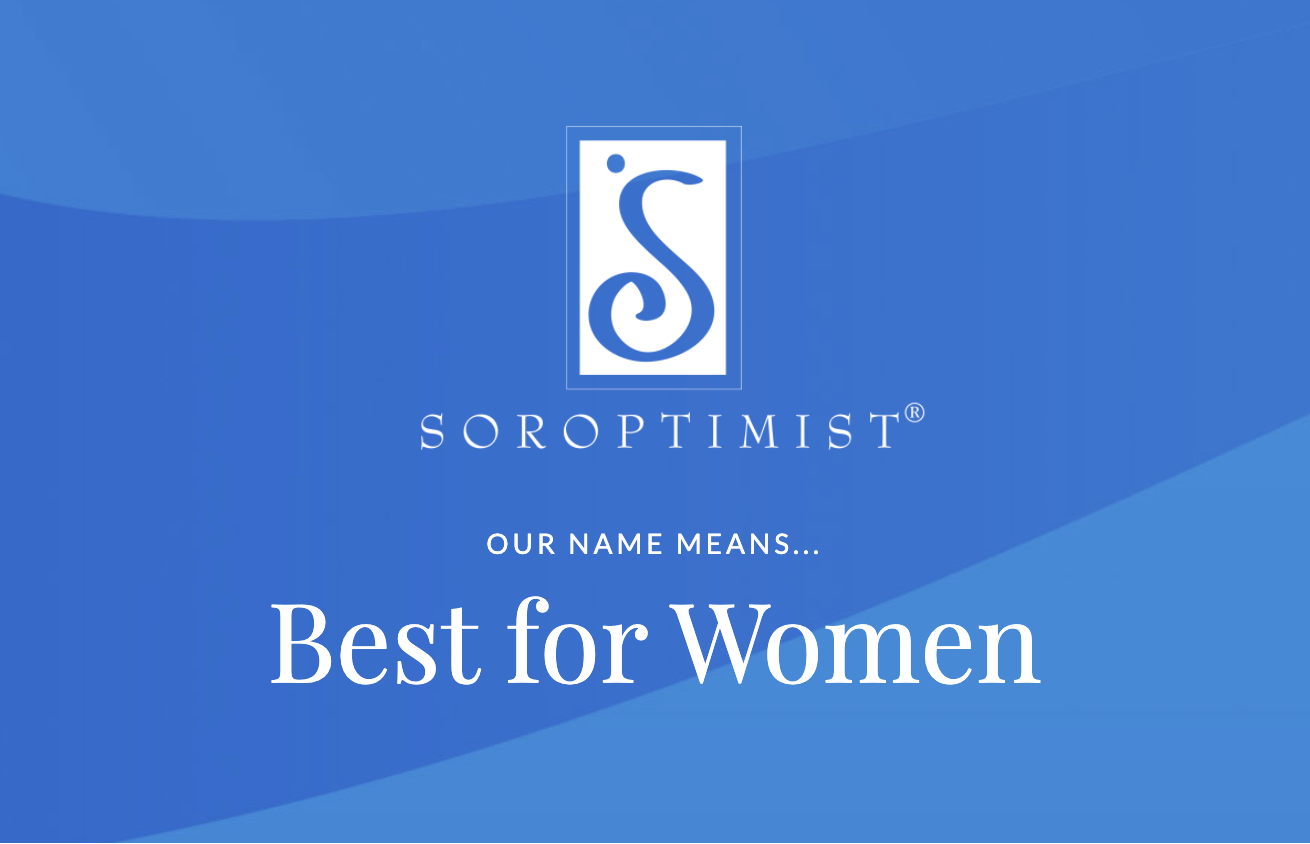UpliftHER Initiative: Period Poverty
Across the diverse countries and territories of Soroptimist International of the Americas, Inc.® and around the globe, many women and girls face difficulty accessing or affording essential period products. This widespread issue, known as period poverty, often leads to absenteeism from work and school, negatively impacting their future.
In honor of May 28, World Menstrual Hygiene Day, Soroptimists are coming together to highlight this issue and take action on ways we can help.
What is period poverty?
The inability to afford or access menstrual products, hygiene facilities, and education to manage menstrual health.
What causes period poverty?
Stigma: Cultural taboos and misconceptions about menstruation that lead to shame and misinformation.
High Cost of Menstrual Products: Many women and girls cannot afford sanitary products due to financial constraints. They are taxed as luxury items in many places despite being a necessity.
Lack of Water and Sanitation Facilities: Inadequate access to clean water and sanitation hampers proper menstrual hygiene management.
This lack of access in and of itself causes immense difficulty for women and girls in their everyday lives. As a result, girls may miss school and fall behind in their education, while women may miss work, affecting their income and economic opportunities.
What are the facts?
An estimated 500 million people worldwide lack access to menstrual hygiene products. (Source: UNICEF & WHO)
20 U.S. states still tax menstrual products as luxury items (as of 2024). (Source: Period Equity & Alliance for Period Supplies)
70% of Canadian menstruating people have missed school or work due to lack of access to period products. (Source: Canadian Public Health Association)
Nearly 30% of Japanese women aged 15-24 reported feeling embarrassed when colleagues or classmates found out about their period. (Source: Plan International)
In Mexico, 42% of adolescent girls and women report missing school during their period (Source: United Nations)
28% of Brazilian women have missed classes due to an inability to afford menstrual hygiene products. This lack of access can lead to students missing up to 45 days of school per year. (Source: Women’s Media Center)
On average, a Taiwanese woman spends approximately NT$100,000 (about US$3,200) over her lifetime on menstrual products, representing a significant economic challenge, especially for low-income families (Source: Taipei Times)
Sanitary products in South Korea are some of the most expensive in the world; a study conducted by the Korean Women’s Environmental Network (KWEN) found that sanitary pads in South Korea were nearly 40 percent more expensive than overseas sanitary napkins (Source: Women’s media center)
A study revealed that 50% of Argentine women have had to limit their purchase of menstrual products due to financial constraints, and 80% have altered their menstrual hygiene management habits in the past year, often opting for cheaper alternatives or prolonging the use of products (Source: Latinoamerica21)
In a school survey conducted by Save the Children Philippines, it showed that majority of girls face difficulty of concentrating and participating in their classes when they have their menstrual period. (Source: Save the Children)
Take Action
With our May Soroptimists UpliftHER focus on the impact of period poverty, you can:
Help spread awareness by sharing SIA social media posts and graphics
Share your projects that address this issue with the hashtag #SoroptimistsUpliftHER
Provide period products to schools, agencies, or other nonprofits in your area to make a direct impact. Be sure to report it as a Big Goal Accelerator Project to help us reach our Big Goal.
Together we can break the cycle of period poverty, empowering women and girls to pursue their education, careers and dreams without barriers. Let’s take action and UpliftHER today!
Spread awareness about period poverty on social media with these graphics! Click the download buttons to access graphics in your language from Dropbox.
SHARE THIS:












